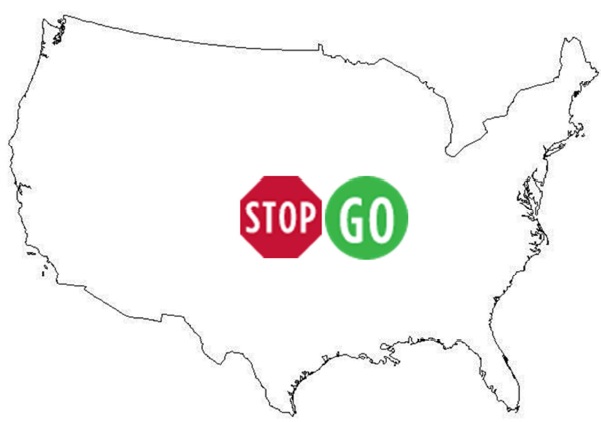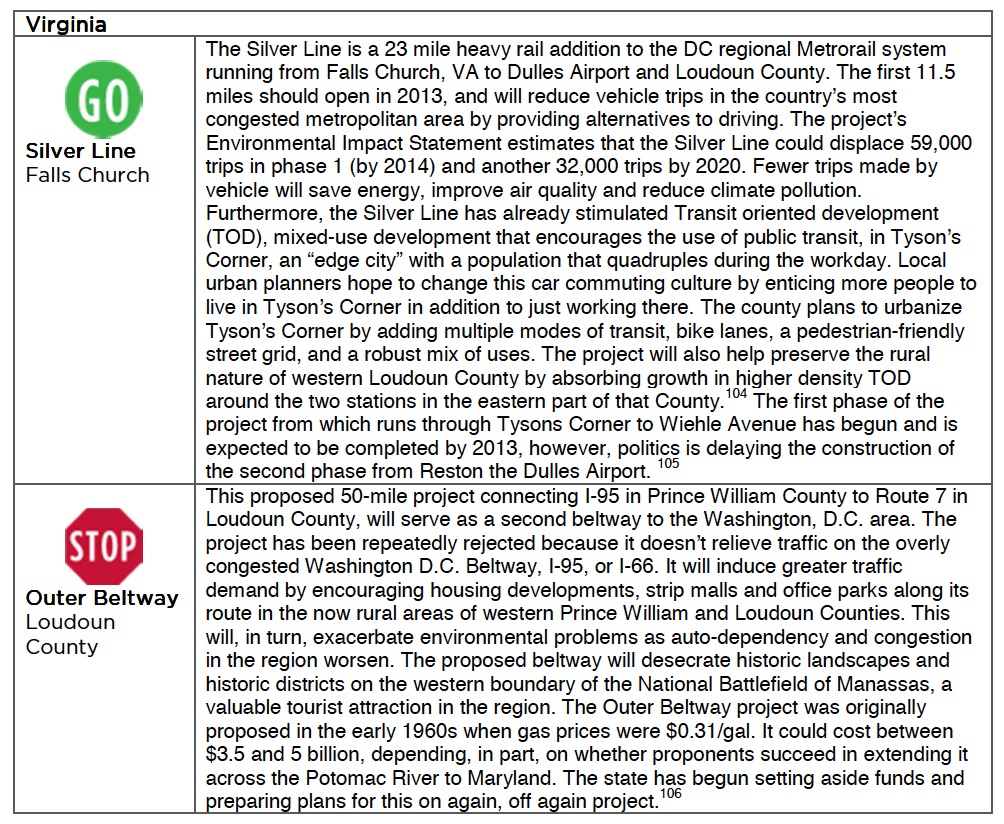SIERRA CLUB
Introduction
 Each year, America invests more than $200 billion in federal, state, and local tax dollars on transportation infrastructure—bridges and highways, aviation and waterways, public transit and sidewalks.1 But too often transportation projects undermine the higher national goals of reducing oil consumption, increasing safety, improving public health, and saving local, state or federal government—and citizens— money.
Each year, America invests more than $200 billion in federal, state, and local tax dollars on transportation infrastructure—bridges and highways, aviation and waterways, public transit and sidewalks.1 But too often transportation projects undermine the higher national goals of reducing oil consumption, increasing safety, improving public health, and saving local, state or federal government—and citizens— money.
Americans are struggling with the health, climate, and economic costs of our oil-centered transportation system. While new standards that double fuel efficiency of new vehicles to 54.5 mpg by 2025 and cut carbon emissions in half are essential to reducing our dependence on oil and its many consequences, our transportation investments should provide an opportunity to further reduce our dependence on oil, reverse climate disruption, and save money. Because transportation infrastructure lasts for decades, the impacts of transportation investments are felt for many years to come, with huge consequences for America’s ability to move beyond oil.
The transportation infrastructure we build today will either keep us stranded in our cars and at the mercy of gas prices—a situation that today drains nearly $1 billion from our economy every day2 to pay for foreign oil—or it can promote transportation choices that reduce our reliance on oil, curb air, water, and climate pollution, boost local economies, and improve transportation equity and public health.
This report is based on a 2002 Sierra Club report called “Smart Choices, Less Traffic.” The 50 transportation projects included in this report serve as examples of the “best” and “worst” in transportation investment.
This report shows that Americans can and should expect the dollars we spend on transportation to contribute to solving environmental and economic problems. Smart transportation investments are already providing Americans with transportation options that reduce our dependence on oil, improve air and water quality and public health, and keep more money in local economies. But, old highway spending habits die hard.
Policies that more closely link transportation investments to performance measures such as oil use, fair access to transportation choices, and air quality, will help ensure that America’s transportation investments help address the challenges of the 21st century.
About the Sierra Club
www.sierraclub.org
“We are America’s largest and most influential grassroots organization. Explore, enjoy, and protect the planet with us.”







 RSS Feed
RSS Feed